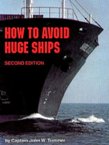warspite1
Posts: 41353
Joined: 2/2/2008
From: England
Status: offline

|
quote:
ORIGINAL: mind_messing
quote:
ORIGINAL: warspite1
quote:
ORIGINAL: mind_messing
quote:
ORIGINAL: warspite1
quote:
ORIGINAL: mind_messing
quote:
What we are talking about here is the notion that a country - and obvious examples would be the UK or France - would use their colonial (or dominion) troops (or as you say, troops subordinate to them such as the Poles) as cannon-fodder - giving them the toughest assignments and forcing them into carrying out break-through attacks, last ditch defences etc.
That absolutely was the case. For the British as the war progressed and the manpower crisis deepened, keeping casualties as low as possible was a strategic need.
warspite1
The manpower shortage really showed itself in 1944. But what are you saying, the British Army left all the fighting to the Canadian 2nd Army post D-Day? Was there no such problem with Canadian replacements - who remember were subject to being volunteers before serving overseas?
As I said, it would be nice to have some properly reasoned argument - or better still evidence - to show that the British (even if they could - which was increasingly not possible) used their dominion (or colonial) or Polish troops as cannon-fodder.
There's definitely an argument to be made to at least the insensitivity of British command to heavy losses from other nationalities. Monte Cassino springs to mind, Dieppe has already ben discussed, and the Polish contingent involved in Market Garden. The shameful treatment of Sosabowski , his Polish paratroopers and the Polish government in exile following Market Garden doesn't exactly paint British commanders as being concerned for their wartime Allies.
warspite1
Simply throwing names out there - and please feel free to add Gallipoli and Dieppe to the list - is, of itself a pointless exercise in terms of supporting the argument. But I wasn't expecting anything different to be honest.
No, I think you're being obtuse. There's an abundance of evidence that British commanders were insensitive to the concerns of national comamnders and quite willing to be "fast and loose" with how they deployed them.
What's worse, in my view, is that there were never any real ramifications for those involved, which in my view has a significant role to play in making these battles contentious points of debate.
Churchill planned and co-ordinated Gallipoli, was forced out of the Admiralty but managed to make a come-back before the war was done.
Dieppe was Mountbatten's brainchild. Instead of censure, he got a promotion and sent to SEAC.
Market Garden was Monty's operation, and when it faltered they tried to pin it on Sosabowski and his Polish paratroopers.
quote:
That said, not many on the Commonwealth side think about the British who lost a lot of men in WWI, then a bunch in the battle of France in 1940, then more at Crete and in North Africa and a heavy toll on the navy in the Med. The logic of using the Commonwealth troops was there, it is the support that was questionable in my understanding of the situation.
The lack of insight of Commonwealth nations into the British position is understandable in the international context.
Would the average Australian/Canadaian/New Zealander be enthusastic about fighting and dying to preserve Britain's position as a world power?
There's no denying that a significant element of the population felt that way (and volunteered to fight as a result), but it's worthwhile to note the severe opposition to draft laws in all the Commonwealth nations. It wasn't "their war", as evidenced with the pushback when Japanese involvement caused concerns over the defence of Australia.
warspite1
Not really sure why you believe I was being 'obtuse'. I was being dismissive. I was responding in kind to the way you've opened debates with me previously. It was a cheap shot, and not one I should have allowed myself to take. My sincere apologies for the tone.
But your making vague, general comments about an 'abundance of evidence' actually adds nothing to the debate.
No ramifications? Ah.... Churchill and Gallipoli. Well, there are a couple of things to point out. One was that the campaign was one of few enlightened strategic ideas to help end the mass slaughter on the Western Front. It was not the idea that was wrong - it was the woeful execution - and that was not Churchill's fault. Secondly what, in terms of the subject of the debate, has the merits of the Gallipoli campaign got to do with using ANZAC's as cannon-fodder? You think I'm being obtuse, well you have totally and utterly missed the point. Right or wrong, good or bad, Gallipoli happened. The 'charge' is that the British purposely threw ANZAC lives away at Gallipoli - not that Gallipoli happened. British deaths were higher, French deaths were higher. Please show the evidence to support your belief that the British commanders decided to use ANZAC troops in the worst fighting (how would they know in advance?), in the toughest operations. Perhaps you are suggesting the British that died at Gallipoli died of tea poisoning or from sun stroke while taking in the rays while only the ANZACs (and the French) fought? But of course you are not, you know the number killed - so on what do you base your accusation? Where, I ask again, is the evidence?
Dieppe, again you are just not getting it. Mountbatten proved very well suited to his role in the Far East. So the move could be considered a good one. But what are you saying? He got rewarded for purposely using the Canadians as cannon-fodder? Commanders fail. Some are sacked and never recover - yes, even British ones if you care to read military history - while others survive. That is not peculiar to the British, that is all part of life's unfairness. But you are simply throwing mud without actually understanding where the target is. Did Mountbatten choose to employ Canadians? Did he amend the plan because Canadians were involved? Did he not bother to come up with a sounder plan because, well it was only Canadians? What are you saying?
Ah the 'They' have surfaced. Good old 'They' - the preserve of conspiracy theorists the world over. So please, provide evidence. Who exactly tried to blame the entire failure of Market-Garden on the Polish Brigade. But again (in the context of this debate) so what if they did? It wouldn't be right, but its been done a thousand times before. The balls up at Stalingrad - the Germans blamed the Romanians, the battles in North Africa - the Italians were the German scapegoat, the attack by D'Erlon Corps at Waterloo? Let's blame the Dutch-Belgian troops of Bylandt's brigade. BUT it's the wrong argument. We are not talking about official histories being used to inflate performance of some or downplay performance of others, we are talking about an accusation that Colonial/Dominion troops were used as cannon-fodder.
quote:
Would the average Australian/Canadaian/New Zealander be enthusastic about fighting and dying to preserve Britain's position as a world power?
Again why have have you gone off at a tangent? To ask this is just so poor on so many levels, not least of which is that - once again - you are not seeking to confront what this debate is about, but are simply happy to deflect. World War II was total war. Yes, World War II was their war - the same way that Roosevelt knew and understood that the USA needed to be involved. The defence of the homeland for the Dominions was their priority. Without Japan in the war, the Middle East was the gateway to the Far East - and it was the Germans that had to be stopped. Take the UK out of the equation (and remember after France we are talking about a period when the Commonwealth stood alone) and what does that mean for the Dominions? Once Japan joined, the need to defend the homeland from that immediate threat became more critical. Different Commonwealth Dominions passed different laws on conscription - look at the South African and Canadian laws.
The land campaign in Italy is not something I know that much about but this maybe a good starting point. Monte Cassino and the Poles has been mentioned as an example of the British being happy for non-British troops under its command to take heavy losses. There were iirc 4 attempts to take Cassino and, ultimately it was the Poles that succeeded. Because there were four attempts it might be useful to look at how events unfolded, which troops were used, what the casualty rates were, why were the Poles used in the fourth attempt? were they used earlier? etc. etc.
Any Italian Campaign experts here? I assume mind_messing you know something of this as I believe it was you that used Monte Cassino as an example of British profligacy with non-British troops under it's command?
< Message edited by warspite1 -- 5/8/2019 7:04:20 AM >
_____________________________
England expects that every man will do his duty. Horatio Nelson October 1805  |
 Printable Version
Printable Version

















 I am hoping Spurs don't embarrass themselves and can avoid a cricket score, but I'm not hopeful
I am hoping Spurs don't embarrass themselves and can avoid a cricket score, but I'm not hopeful  . Liverpool vs Ajax in the final will be a good game - two incredibly attacking teams.
. Liverpool vs Ajax in the final will be a good game - two incredibly attacking teams.  New Messages
New Messages No New Messages
No New Messages Hot Topic w/ New Messages
Hot Topic w/ New Messages Hot Topic w/o New Messages
Hot Topic w/o New Messages Locked w/ New Messages
Locked w/ New Messages Locked w/o New Messages
Locked w/o New Messages Post New Thread
Post New Thread